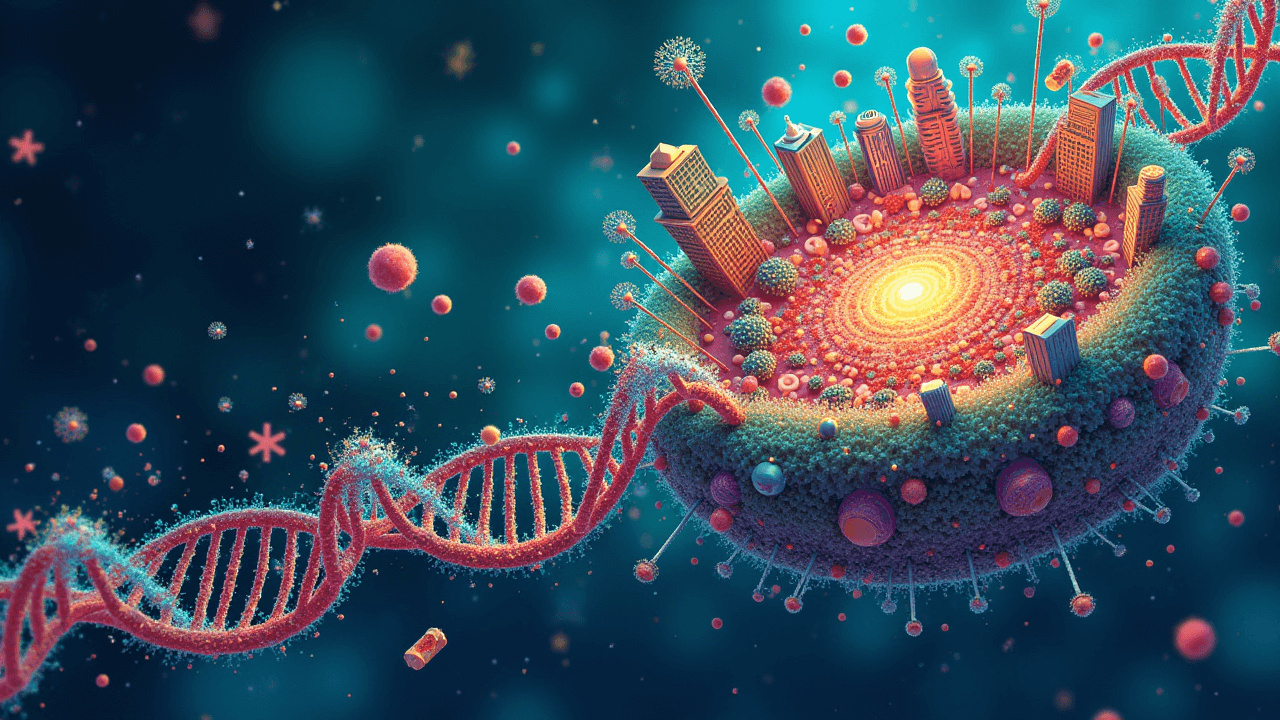Diving into the Mystery of Life’s Building Blocks
Have you ever really sat down and thought about how something as incredibly complex as life can come from teeny, tiny pieces that aren’t even alive themselves? It’s a question for the ages, isn’t it? It’s a real brain twister, and that’s what we’re diving into today. What actually makes something alive in the first place? There’s got to be more to it than just existing.
This whole idea got me thinking about the recipe for life. It’s not just about the ingredients themselves—the molecules or whatever—but about what they can do together, right? Being able to reproduce and react to stuff, passing down traits, the whole nine yards. Especially that last one: passing down traits. That’s huge because that points to evolution, which a lot of scientists, even NASA, see as the core of what makes life… well, life.
The Importance of Interaction and Evolution
More Than Just Molecules
So, it’s not enough to just be a bunch of molecules. You’ve got to be a bunch of molecules that can learn and change over time. It’s about being part of a system that adapts and evolves, like being able to pass on the good stuff to your offspring, you know? So life keeps going, keeps changing.
The Role of Cells: Tiny Factories of Life
Which brings us to cells—those tiny little factories inside every living thing, doing their thing. Each cell is like a bustling city in there, all these different organelles working together, each with its own little job to do. It’s wild. So each tiny part is essential for the whole thing to work.
Emergence: When the Whole Is Greater Than the Sum of Its Parts
Simple Parts, Complex Wholes
That’s where things get super interesting with this whole emergence idea. When you take simple things and combine them in the right way, suddenly, bam! Something totally new and way more complex pops up.
From Ingredients to Cake
Think about it like ingredients versus a cake. On their own, they’re just kind of there. But put them together the right way, add a little heat, and boom—delicious cake! It’s like magic. It really is. It’s the whole being greater than the sum of its parts.
The Fuzzy Line Between Living and Non-Living: Viruses
The Enigma of Viruses
But then, what about stuff that challenges that whole definition, like viruses? That’s where things get kind of fuzzy. Viruses are tricky little things, aren’t they? They’re barely anything—just these tiny packages of genetic material. And their whole deal is sneaking into other cells and basically hijacking them to make copies of themselves.
Are Viruses Alive?
They evolve, they definitely replicate, but they can’t do it on their own. It’s like they’re missing a piece of the puzzle. It’s like having a super-fast sports car but needing someone else to drive it for you, right? They need that host cell to do all the work. It’s mind-blowing when you really think about it. It makes you question everything you thought you knew about being alive.
Appreciating the Complexities of Biology
Cells Working Together
It really does make you appreciate the complexities of biology. You’ve got all these individual molecules, and they’re cool and all, but on their own, it’s not the same. It’s when they’re working together that things get really amazing. It’s like those time-lapse videos of a plant growing from a seed. You’re just like, how does it even do that?
The Marvel of Our Bodies
And to think that’s happening inside of us constantly—trillions of cells all working together to keep us alive, thinking, even just listening to this. It’s incredible. We totally take our bodies for granted. We should really give a shout-out to our cells more often, right? They’re the real MVPs.
The Ever-Evolving Understanding of Life
The Role of Artificial Intelligence
But you know what’s even crazier? We’re still learning about all of this. There’s so much we don’t know about life. And speaking of giant puzzles and things we don’t fully understand, what about artificial intelligence? Where does that fit into this whole “what is life” conversation?
Rethinking Life Itself
As AI systems get more advanced—able to learn, adapt, maybe even copy themselves—it makes you wonder. Do we need to totally rethink what we even mean by life? It’s kind of freaky when you think about it. Are we going to accidentally create a new form of life? Or is AI something completely different from organic life? It’s not like we can just ask it if it’s alive, but it’s something we’ve got to figure out because AI is changing so fast.
The Endless Journey of Discovery
Challenging Our Definitions
Absolutely. It really shows how even science itself is always changing. What we thought we knew about life is being challenged every day with new discoveries and tech like this whole AI thing. It makes us really think hard about what “alive” even means in the first place.
Embracing the Unknown
It’s like we’re about to totally blow up our understanding of life as we know it. Kind of scary, kind of exciting at the same time. It reminds you that we don’t know everything. There’s still so much out there to discover about life and the universe.
A Symphony of Cells: Celebrating Life’s Complexity
For everyone out there thinking about this crazy trip, remember—you’re not just a bunch of cells. You’re like this incredible example of what happens when a bunch of tiny things work together. You’re like a symphony of cells doing their thing to make you, you. Maybe someday we’ll look back, and this realization will show us just how much potential life really has—for all kinds of life, the stuff we know about and the stuff we haven’t even discovered yet.
FAQs
What makes something alive in the first place?
It’s more than just existing. Being alive involves the ability to reproduce, react to the environment, and pass down traits to offspring. This points to evolution, which many scientists see as the core of life.
How do simple molecules create complex life?
Through a process called emergence, simple molecules combine in the right way to create something new and more complex. It’s like ingredients coming together to make a cake—the whole is greater than the sum of its parts.
Are viruses considered alive?
Viruses are a gray area. They evolve and replicate but can’t do it on their own. They need a host cell to reproduce, which makes scientists debate whether they are truly alive.
How do cells function as the building blocks of life?
Cells are like tiny factories with different organelles working together. Each part is essential, and together they perform all the functions necessary for life.
Could artificial intelligence be considered a form of life?
As AI systems become more advanced, they challenge our definitions of life. They can learn, adapt, and perhaps even replicate, prompting us to rethink what being “alive” means.
Your Hosts

Alex & Maria
Join Alex Thompson and Maria Davis as they navigate the fascinating world of knowledge. With their combined expertise and passion for learning, they simplify the complex and make every episode a journey worth taking.

